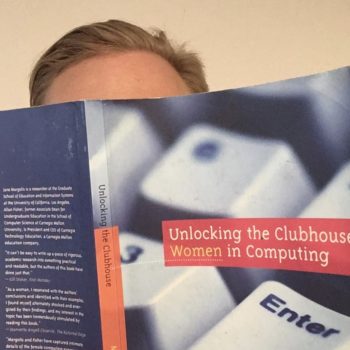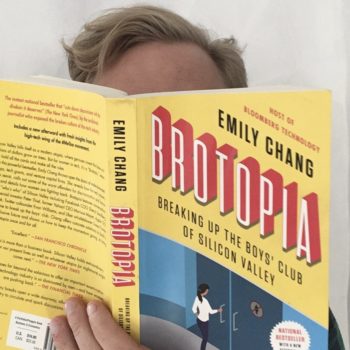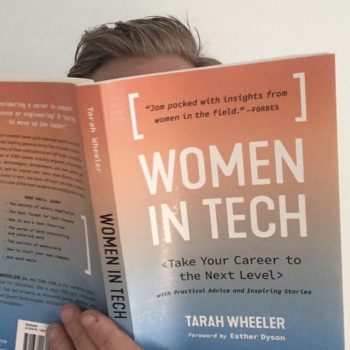How strongly do I recommend Unlocking the Clubhouse?
9 / 10
Review of Unlocking the Clubhouse
Unlocking the Clubhouse is a must read for anyone interested in opening opportunities for women in technology:
- Educators
- Engineering Managers
- Parents
This book is part quantitative research and part qualitative, telling the stories of female computer science students in high school and at Carnegie Mellon.
The stories and lessons presented in this book apply equally to software development as they do academia and I recommend this book for every software engineering manager.
I also appreciated the authors keeping this book to a concise 150 pages, where many authors would have turned this into a 400 page unapproachable paperweight.
Top Ideas in This Book
- Gender identification with computers starts in early childhood
- Males often enter computer science classes with much more experience than females, causing females to feel unprepared and behind
- Women are interested in computer science based on connections to other fields
- Women often feel demotivated by lower expectations
- A growth mindset is key to women’s resilience in computer science
- Software engineering values are more aligned with female values than computer science
Gender identification with computers starts in early childhood
By the age of five or six, children develop a sense for male vs. female activities. At that point, the genders split in the toys they play with and activities they partake in.
In computing, researchers found that fathers play with sons 50% more than daughters, while also spending more time introducing boys to computers.
As girls grow, they start to view computers as masculine, often referring to the actual computer as a “he” and during teenage years computers are much more likely to be found in a boy’s bedroom.
When girls do receive encouragement in computing from parents, it often comes during high school or college. But by this point, many girls feel behind.
Males often enter computer science classes with much more experience than females, causing females to feel unprepared and behind
Entering into high school and computer science classes, males are far more likely to have prior programming experience.
The incoming experience gap between boys and girls contributes to girls feeling inadequate and behind. They start to question whether they belong in computer science at all.
The girls researched often said that boys are obsessed with computers, and these girls didn’t want to dedicate their life to programming. This obsession gap and seeming requirement further adds to questions of belonging among girls.
To combat this, Carnegie Mellon successfully implemented four paths to entry in computer science based on previous experience level. This right-sizing allowed more novice students of both genders to self-select into the appropriate level and feel more comfortable, which reduced churn.
Women are interested in computer science based on connections to other fields
Most computer science classes are taught in a dry manner that’s all about the programming. This isolated approach often appeals to males, but not females.
Women are more interested in the opportunities created by connecting computer science to other domains. They value the application, not just the technology itself. For instance, how computer science can be applied in biology or social change.
Women often feel demotivated by lower expectations
Women in computer science programs often hear that they were only accepted because they are female. Implicit or explicit in these comments is the belief that the women are not smart enough or good enough at programming to truly participate.
The result of these divisive and derogatory comments is a set of lower expectations for female computer science students. As you can imagine, someone expecting less of you based on your gender would feel demotivating and unwelcoming.
A growth mindset is key to women’s resilience in computer science
International female computer science students seem to be more resilient to these challenges than their American peers.
The researchers note that these women often come from cultures where hard work and resiliency are viewed as the keys to success, whereas many Americans believe raw intelligence is more critical.
Likewise, these international students were less exposed to the male hacker identity and expectation than the Americans, so they were less likely to believe that an obsession with computers is necessary to success.
Software engineering values are more aligned with female values than computer science
The authors make a useful distinction between the values of computer science – program performance and programmer speed, which are highly valued by men and our existing computer science curriculum – vs. qualities valued in software engineering, which are often valued by women:
- Composability
- Extensibility
- Flexibility
- Maintainability
- Readability
- …and so on



